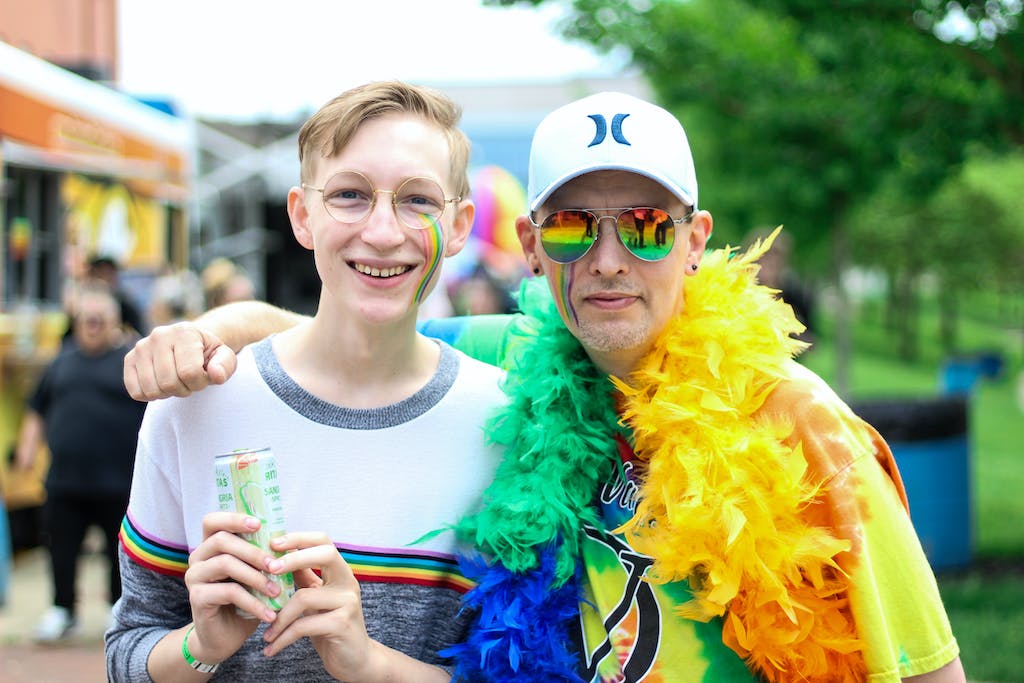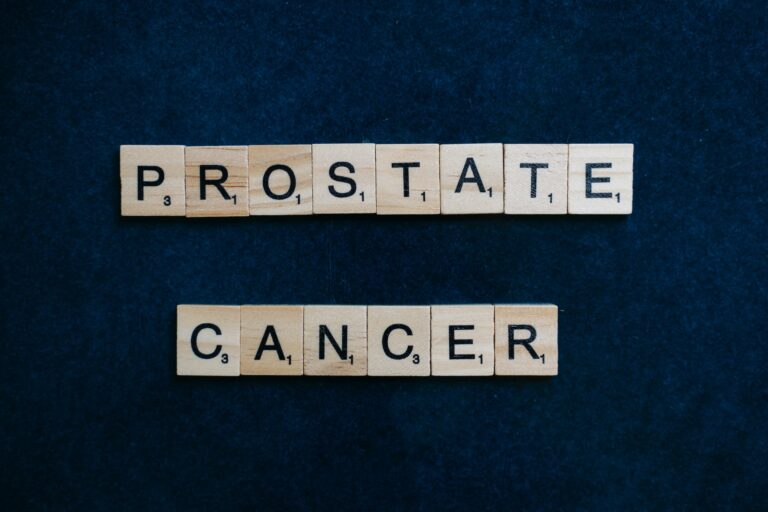The Challenges and Benefits of Being Homosexual in Modern Society

Table of Contents
Personal Growth and Resilience: Highlighting the

In today’s fast-paced world, personal growth and resilience have become increasingly important in navigating the challenges and uncertainties of life. Whether we face setbacks and failures or encounter unexpected obstacles, our ability to adapt, learn, and grow ultimately determines our success and well-being.
Personal growth encompasses various aspects of our lives, including our emotional, mental, and physical well-being. It involves developing self-awareness, embracing continuous learning, and striving for self-improvement. By engaging in activities that expand our knowledge, such as reading, attending workshops, or seeking professional guidance, we enhance our personal growth.
Resilience, on the other hand, is the capacity to bounce back from adversity and thrive despite difficult circumstances. It is not about being invincible or avoiding challenges, but rather, it is about developing the inner strength and coping mechanisms to overcome obstacles. Resilience allows us to adapt and grow from our experiences, turning setbacks into stepping stones towards personal development.
In the upcoming sections, we will delve deeper into the concept of personal growth and resilience, exploring practical strategies and insights to foster these traits in our daily lives. Through the lens of personal anecdotes, scientific research, and expert perspectives, we will uncover the potential for growth and resilience within each and every one of us. By harnessing these qualities, we can cultivate a life rich in personal fulfillment and success, capable of weathering any storm that comes our way.
This table summarizes the challenges and benefits of being homosexual in modern society:
| Aspect | Description |
|---|---|
| Challenges | |
| Discrimination and Stigma | Homosexual individuals often face discrimination, prejudice, and stigma based on their sexual orientation. Discrimination may manifest in various forms, including verbal harassment, social exclusion, employment discrimination, housing discrimination, and hate crimes. Stigma can have negative effects on mental health, well-being, and quality of life, contributing to higher rates of anxiety, depression, substance abuse, and suicide among LGBTQ+ individuals. Addressing discrimination and stigma remains a key challenge for LGBTQ+ rights advocates and allies worldwide. |
| Legal and Social Inequality | Despite progress in LGBTQ+ rights and recognition, legal and social inequalities persist for homosexual individuals in many parts of the world. Same-sex relationships may not enjoy the same legal recognition, rights, and protections as heterosexual relationships, leading to disparities in areas such as marriage, adoption, healthcare access, and employment benefits. Social acceptance and visibility vary by country and region, with LGBTQ+ people in some areas facing greater risks of discrimination, violence, and marginalization due to legal and cultural barriers. |
| Family and Community Rejection | Homosexual individuals may experience rejection and alienation from family members, peers, and communities due to their sexual orientation. Family rejection, in particular, can have profound emotional and psychological effects, leading to feelings of isolation, shame, and estrangement from loved ones. Lack of familial support can impact mental health, self-esteem, and relationship satisfaction, highlighting the importance of family acceptance and affirmation for LGBTQ+ individuals’ well-being and resilience. |
| Health Disparities | Homosexual individuals may face health disparities and barriers to healthcare access due to discrimination, stigma, and lack of culturally competent care. LGBTQ+ people may be less likely to seek healthcare services, disclose their sexual orientation to healthcare providers, or receive appropriate screenings and preventive care. Health disparities among homosexual populations include higher rates of mental health disorders, substance abuse, HIV/AIDS, and other sexually transmitted infections (STIs), highlighting the need for inclusive healthcare policies, provider training, and LGBTQ+ affirming services. |
| Safety and Security | Homosexual individuals may experience safety concerns and risks of violence, harassment, and hate crimes based on their sexual orientation. LGBTQ+ people, particularly transgender and gender-nonconforming individuals, are disproportionately targeted for verbal and physical assaults, bullying, and intimate partner violence. Ensuring safety and security for LGBTQ+ individuals requires efforts to combat homophobia, transphobia, and hate-based violence through legal protections, law enforcement training, public education, and community support networks. |
| Benefits | |
| Community Support and Resilience | Despite challenges, homosexual individuals often find support, solidarity, and resilience within LGBTQ+ communities. LGBTQ+ community organizations, social networks, and support groups provide spaces for connection, affirmation, and advocacy, fostering a sense of belonging and empowerment. Community support helps combat feelings of isolation, promotes self-acceptance and pride, and encourages collective action to address discrimination and advance LGBTQ+ rights and visibility. |
| Identity Affirmation and Authenticity | Embracing one’s homosexual identity can promote self-acceptance, authenticity, and personal fulfillment. Coming out and living openly as a homosexual individual allows individuals to express their true selves, pursue meaningful relationships, and build supportive networks based on mutual understanding and acceptance. Embracing one’s identity fosters resilience, self-confidence, and pride, empowering individuals to navigate challenges, advocate for their rights, and contribute to LGBTQ+ visibility and representation in society. |
| Diverse Relationships and Perspectives | Homosexual individuals have the opportunity to form diverse and meaningful relationships based on mutual attraction, compatibility, and shared values. Same-sex relationships offer unique dynamics, perspectives, and experiences that enrich individuals’ lives and contribute to broader social diversity and understanding. LGBTQ+ relationships challenge traditional norms and stereotypes, promoting acceptance, empathy, and inclusivity within society. Celebrating diverse relationships and perspectives fosters a more inclusive and compassionate society for all individuals, regardless of sexual orientation. |
| Social and Cultural Contribution | Homosexual individuals have made significant contributions to various fields, including arts, culture, science, politics, and activism. LGBTQ+ artists, writers, musicians, actors, scientists, politicians, and advocates have shaped social movements, challenged norms, and advanced human rights and equality for all individuals. LGBTQ+ culture and history celebrate resilience, creativity, and diversity, inspiring social change and promoting LGBTQ+ visibility, representation, and empowerment worldwide. |
What is personal growth?
Personal growth refers to the continuous process of self-improvement and development in various aspects of one’s life, such as emotionally, mentally, and spiritually.
How can personal growth be achieved?
Personal growth can be achieved through various means, including self-reflection, setting goals, seeking new experiences, learning from mistakes, and embracing challenges.
What is resilience?
Resilience is the ability to bounce back and adapt in the face of adversity, challenges, or difficult circumstances.
How can resilience be developed?
Resilience can be developed through building a support network, practicing self-care, maintaining a positive mindset, developing problem-solving skills, and learning from past experiences.
Is personal growth a one-time process?
No, personal growth is an ongoing and lifelong process. It involves continuous learning, self-reflection, and adapting to new situations throughout one’s life.
Can personal growth and resilience go hand in hand?
Yes, personal growth and resilience are closely interconnected. Personal growth often leads to increased resilience as individuals develop the skills and mindset needed to navigate challenges and setbacks.
Can personal growth and resilience benefit our professional lives?
Absolutely. Personal growth and resilience are essential for professional success. By continuously improving ourselves and developing resilience, we can better handle workplace challenges, adapt to changes, and pursue career growth.
Can personal growth and resilience have a positive impact on relationships?
Yes, personal growth and resilience can positively impact relationships. By continuously working on ourselves, we become more self-aware, empathetic, and better equipped to handle conflicts or challenges within relationships.
Are personal growth and resilience traits that can be learned?
Yes, both personal growth and resilience are traits that can be learned and developed over time. With dedication, self-reflection, and practice, individuals can cultivate these qualities within themselves.
How can personal growth and resilience contribute to overall well-being?
Personal growth and resilience play significant roles in overall well-being. They promote self-confidence, help manage stress, increase adaptability, and foster a sense of purpose and fulfillment in life.






